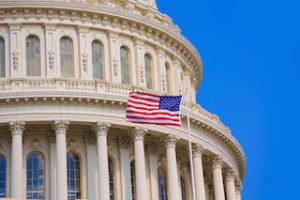MILWAUKEE – According to new findings released July 18 fromNorthwestern Mutual’s 2016 Planning & Progress Study, the established value of human advice in financial planning is not easily replaced by technology alone.
When asked how they would prefer to receive financial advice, the majority (54%) said the ideal solution combines a human relationship with technology while a full third (33%) prioritized a human relationship above all else. Notably, the appetite for a fully automated (robo) solution appears low across all age groups, even for Millennials, with fewer than two in 10 in that age group opting for robo.
“The data reflects what we’re hearing from our clients,” said Tim Schaefer, executive vice president, client and digital experience, Northwestern Mutual. “As people’s financial and personal lives become busier and more complex, they want expert guidance tailored to their needs and access anywhere at any time. Technology transforms the roadmap to financial security into a 24/7 financial GPS.”
Reservations about robo
Though 53% of Americans indicated that they would be open to trying automated advice, only a small fraction (7%) said they are “extremely or very interested” whereas as the majority cited only being “somewhat interested.”
The nearly 50% of respondents who had “no interest at all” in robo advisors flagged the following as their top reasons:
- A preference for a human advisor who can answer questions and discuss options (48%)
- Lack of trust (40%)
- Desire for knowledge and expertise of a human advisor (38%)
Interestingly, this third factor was most pronounced for Millennials, suggesting that even digital natives who rely heavily on technology in many aspects of their lives appreciate the importance of human expertise in navigating the intricacies of financial planning.
Women emerged as somewhat less receptive towards automated advice, with a full half saying they were “not at all interested” relative to 43% of men. This dovetails with other Planning & Progress Study findings indicating that women are more likely to prioritize deep knowledge of personal circumstances and tailored attention – intrinsic attributes of human advice – when describing the ideal financial services provider.
“It’s encouraging to see that most Americans recognize that the experience and knowledge of a human advisor is at the heart of sound financial planning,” Schaefer said.
The research released this week is the latest set of findings from the 2016 Northwestern Mutual Planning & Progress Study, an annual research project commissioned by Northwestern Mutual that explores Americans’ attitudes and behaviors toward finances and planning. The research was conducted online in February among over 2,000 U.S. adults aged 18 and older.
Majority of Americans not getting advice
According to research released in June from Northwestern Mutual’s Planning & Progress Study, the majority (68%) of U.S. adults are not getting professional financial advice; and among those who are, many (43%) say their advisors don’t feel like long-term partners with a deep knowledge of their complete financial picture.
“We see this as a real call to action both for individuals and the industry,” said Gregory C. Oberland, president of Northwestern Mutual. “It’s important for people to understand that financial security requires serious planning, professional help and strong discipline over a long period of time. By not taking action, they risk making the long road to financial security even longer.”
Oberland added, “The findings also serve as a strong reminder to the industry that the people we serve need great partners as much as they need great products. To be a great partner, it requires a deep knowledge of people’s complete financial pictures, a genuine interest in developing relationships that last a lifetime, and the tools and expertise to develop comprehensive long-term plans.”
The study found:
• Nearly seven in 10 Americans (68%) say that they do not have a trusted advisor who offers comprehensive lifetime financial planning
• 45% of Americans do not know where to get the help they need as they move through life stages and need different financial solutions
• Among those with a financial plan, 82% believe that their financial plan should be reviewed at least once every six months, and yet more than six out of 10 people (62%) don’t have a financial advisor of any kind
Among those who are getting professional advice:
• Only 56% say their current/primary advisor gives them an understanding of their complete financial picture
• Only 43% say their current/primary advisor has a long-term commitment
• Only 41% say their current/primary advisor provides tailored attention
• A third (32%) works with multiple different advisors to address different parts of their financial lives (e.g., retirement planning, investments, insurance)
While those findings are concerning, it hasn’t diminished Americans’ long-term optimism. In an earlier finding of the study, Northwestern Mutual found that two-thirds (66%) of U.S. adults believe that they can attain ‘The American Dream’, and only 16% feel it is out of reach.
The research also found something of a values shift – more toward outcomes like happiness and security rather than some traditional notions of the American Dream such as material wealth, opportunities to advance and moving up in social class. When asked about the most defining characteristics of The American Dream today, the top two answers were:
• “Having a happy family life” (59%); and
• “Being financially secure” (58%)
“It’s clear that people’s financial priorities lean toward security and peace of mind, as evidenced in this research study and from the millions of client conversations we have across the country every year,” said Oberland.
40% of Americans believe outliving their savings is likely
As life expectancies continue to climb, Americans are increasingly less confident that their savings will last through retirement. Additional findings from Northwestern Mutual’s 2016 Planning & Progress Study found that two thirds of Americans believe there is some chance that they will outlive their savings, with 1 in 3 (34%) saying the likelihood is 51% or better. Notably, 2 in 5 think that outliving their savings is a definite (100% likelihood).
However, Americans are not proactively addressing the financial implications of living longer. Only a fraction (21%) say they have increased their savings while more than 4 in 10 (44%) report having taken no steps at all.
The lack of preparation is particularly concerning given decreasing confidence about the future availability of Social Security:
• Only a quarter of Americans (24%) say it’s “extremely likely” that Social Security will be there when they retire
• 3 in 10 (28%) listed Social Security uncertainty among the greatest obstacles to achieving financial security in retirement
• Just one third of non-retired Americans (35%) expect that Social Security will be their sole or primary source of retirement income compared to nearly half of current retirees (49%)
“The prospect of an extended retirement in an environment of diminishing safety nets makes it even more essential that your financial plan is flexible enough to stretch as long as needed,” said Rebekah Barsch, vice president of planning for Northwestern Mutual.
Debt a pressure point
The findings further reveal that mounting debt is a serious source of financial pressure for Americans. When asked what one change would make the most significant impact on their financial situation, eliminating all debt (27%) narrowly outpaces earning significantly more income (26%), clearly indicating the magnitude of the debt issue. While mortgages emerged as the leading source of debt (29%), the impact of credit cards come through strongly (23%), exceeding student loan debt, car loans, and home equity loans/lines of credit combined.
No antidote for healthcare costs
For the second year in a row, healthcare costs (45%) emerge as a top-cited obstacle to financial security in retirement along with lack of savings (44%) – substantially ahead of lack of planning (30%), events in Washington, D.C. (23%) and volatile markets (22%).
“Interestingly, though people recognize the impact of healthcare costs and insufficient savings on retirement security, they are not necessarily seeing the role of financial planning as the connection between the two,” continued Barsch. “A solid financial strategy can ease both concerns.”
More bullish about themselves than the U.S.
Despite the financial challenges they’re facing, Americans are generally positive about their broader financial prospects with nearly half (46%) expecting improvement in their finances in 2016. This optimism, however, does not extend to the overall economy. The number of Americans who believe the U.S. economy will be better this year dipped to 31% from 37% last year.
“While it’s encouraging to see that financial worries aren’t putting a damper on the big picture for Americans, optimism without action is like an engine without fuel – it won’t get you far,” concluded Barsch.
For more information, visit www.nm.com.
About The 2016 Northwestern Mutual Planning & Progress Study: The 2016 Northwestern Mutual Planning & Progress Study explores the state of financial planning in America today, and provides unique insights into people’s current attitudes and behaviors toward money, goal-setting and priorities. This study was conducted by Harris Poll on behalf of Northwestern Mutual and included 2,646 American adults aged 18 or older (2,026 interviews with U.S. adults age 18+ in the General Population and an oversample of 620 interviews with U.S. Millennials age 19-35) who participated in an online survey between Feb. 1 and Feb. 10, 2016. Results were weighted to Census targets for education, age/gender, race/ethnicity, region and household income. Propensity score weighting was also used to adjust for respondents’ propensity to be online. No estimates of theoretical sampling error can be calculated; a full methodology is available.
About Northwestern Mutual: Milwaukee-based Northwestern Mutual has been helping families and businesses achieve financial security for nearly 160 years. Its financial representatives build relationships with clients through a distinctive planning approach that integrates risk management with wealth accumulation, preservation and distribution. With $238.5 billion in assets, $27.9 billion in revenues and more than $1.6 trillion worth of life insurance protection in force, Northwestern Mutual delivers financial security to more than 4.3 million people through insurance and investment solutions, including life, disability income and long-term care insurance; annuities; trust services; mutual funds; and investment advisory products and services.













